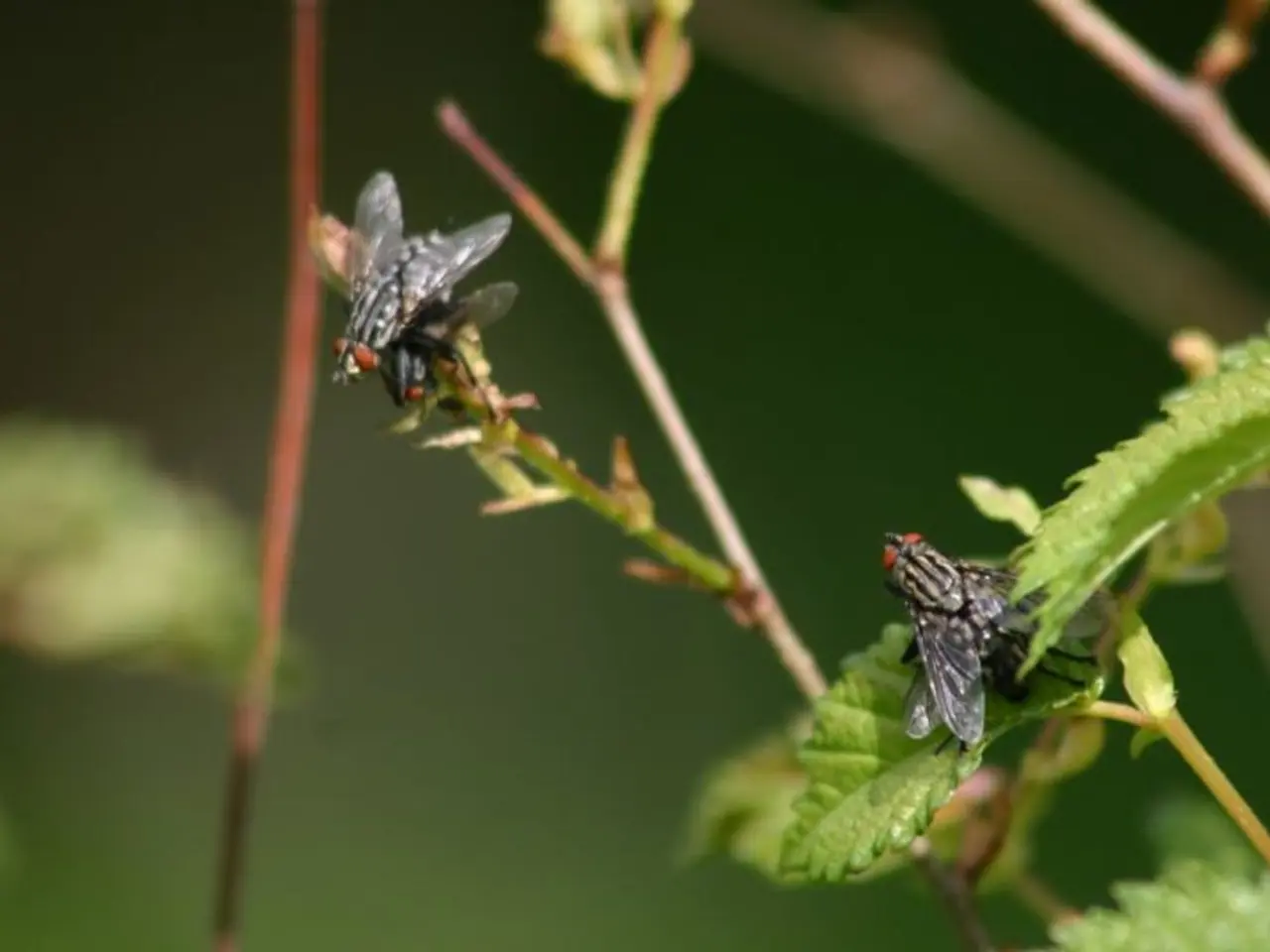Choosing Food: Insights on Flies and Potential Preferences in Humans Regarding Nutrition and Taste
In a groundbreaking study published in the journal Nature Communications, researchers at Yale School of Medicine have uncovered insights into how fruit flies make food choices. The study, led by Preeti Sareen, associate research scientist at Yale, could help illuminate how people make their own food choices.
The research involved presenting fruit flies with options of sweet, nutritious food laced with bitter quinine and less sweet, lower-calorie food. Interestingly, the study found that the hungrier the flies are, the more likely they are to tolerate bitter taste to obtain more calories.
The study revealed that flies relay sensory information to a portion of their brain called the fan-shaped body, where signals are integrated and trigger an executive decision. The determining neurons connected with the fan-shaped body in fly brain regions that play a crucial role in food decision-making are a specific subset of neurons within the fan-shaped body itself. These neurons integrate internal hunger signals and sensory food information to influence feeding behavior.
Neural activity in both a fly's brain and a human's brain is regulated by the secretion of neuropeptides and the neurotransmitter dopamine. In flies, this network of neuropeptides and dopamine may alter how the brain responds to different types of food. In humans, dopamine helps regulate sensations of reward.
Researchers were able to change a fly's choice by manipulating neurons in areas of the brain that feed into the fan-shaped body. For instance, decreasing activity in neurons involved in metabolism made hungry flies choose the lower calorie food. This suggests a feedback loop, not just top-down decision making, in food choices.
The study provides a template to understand how internal emotional states and hunger influence behavior. It also implies that neurochemistry may sometimes dictate food choices that we think we are making consciously.
Sareen and Li Yan McCurdy, a graduate student at Yale School of Medicine, are co-authors of the paper. The study was published in the journal Nature Communications on July 5. This research offers exciting possibilities for future studies, potentially leading to a better understanding of how our brains make decisions about food and other aspects of life.








